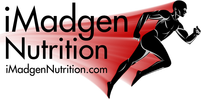Before turning to a nutrition regime, athletes should understand their specific needs first. Every athlete is not the same, nor is his or her requirements. Thus, your nutrition intake should depend on the sport you are pursuing as well as the level you are at: pro, amateur, beginner. Now, if we turn our thoughts to a particular sport, we would be able to better understand what's needed and what should be avoided.
Let us talk in the perspective of swimming. It has to be understood that swimmers are not power athletes like power lifters. Of course, there are powerful components to swimming, but it’s more complex than what everyone thinks it is. The shortest race at the highest level still involves multiple energy systems. So, it is not logical for a swimmer to fuel like a power athlete. They need adequate energy to maintain output over an extended amount of time, something which can be provided by carbohydrate. Swimmers are not strictly endurance athletes either. Some swimmers are strictly endurance athletes, but most are not. Swimmers need to train to acquire strength and power, and they need to recover optimally from this training (i.e. adequate protein).
In addition, swimmers also need to know the truth behind some common nutrition myths. A few of these are discussed below.
Low Carb High Fat (LCHF) diets have reportedly improved performance for many athletes. But, there are other easier ways to achieve these results than switching to LCHF. If an athlete noticed an improvement in performance after switching to a LCHF diet, they may benefit just as much from simply adding some calories to their diet. These could come from fat, carbohydrate, or protein.
It is a common myth in swimming that all you need is water. But, this depends on your definition of need. If getting through practice, not dying, not getting sick, getting adequate recovery, etc., is all you need, water will definitely be enough. However, if you want to optimize performance or optimize adaptation, you would need prescribed amounts of carbs and protein while you train. You have to understand that water is for hydration, and it does not provide energy, repair muscle, or restore glycogen.
Another myth is you need to drastically reduce food intake during a taper. It is true that you don’t want to gain weight during a taper; however, it takes approximately 3500 kcal to gain 1lb, and your daily energy expenditure over a week or so of tapering will not depreciate as drastically as many think. It is important to remember that during a taper your body is trying to adapt to all the training you’ve done over the past weeks and months, and it needs nutrients to do so. If you don’t provide your body with what it needs, the taper doesn’t work!
Let us talk in the perspective of swimming. It has to be understood that swimmers are not power athletes like power lifters. Of course, there are powerful components to swimming, but it’s more complex than what everyone thinks it is. The shortest race at the highest level still involves multiple energy systems. So, it is not logical for a swimmer to fuel like a power athlete. They need adequate energy to maintain output over an extended amount of time, something which can be provided by carbohydrate. Swimmers are not strictly endurance athletes either. Some swimmers are strictly endurance athletes, but most are not. Swimmers need to train to acquire strength and power, and they need to recover optimally from this training (i.e. adequate protein).
In addition, swimmers also need to know the truth behind some common nutrition myths. A few of these are discussed below.
Low Carb High Fat (LCHF) diets have reportedly improved performance for many athletes. But, there are other easier ways to achieve these results than switching to LCHF. If an athlete noticed an improvement in performance after switching to a LCHF diet, they may benefit just as much from simply adding some calories to their diet. These could come from fat, carbohydrate, or protein.
It is a common myth in swimming that all you need is water. But, this depends on your definition of need. If getting through practice, not dying, not getting sick, getting adequate recovery, etc., is all you need, water will definitely be enough. However, if you want to optimize performance or optimize adaptation, you would need prescribed amounts of carbs and protein while you train. You have to understand that water is for hydration, and it does not provide energy, repair muscle, or restore glycogen.
Another myth is you need to drastically reduce food intake during a taper. It is true that you don’t want to gain weight during a taper; however, it takes approximately 3500 kcal to gain 1lb, and your daily energy expenditure over a week or so of tapering will not depreciate as drastically as many think. It is important to remember that during a taper your body is trying to adapt to all the training you’ve done over the past weeks and months, and it needs nutrients to do so. If you don’t provide your body with what it needs, the taper doesn’t work!

 RSS Feed
RSS Feed





